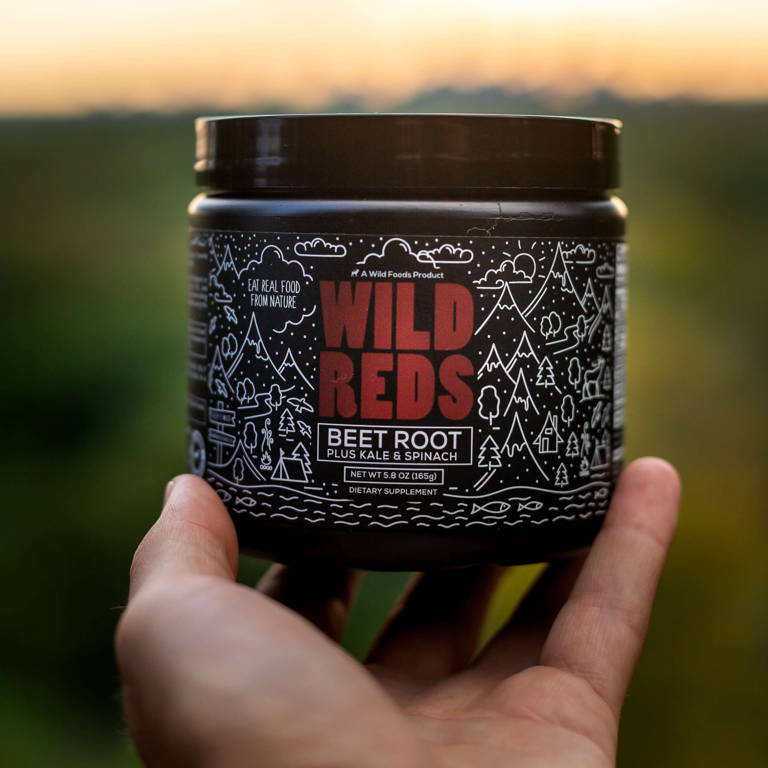
Caffeine-free
The absence of caffeine makes this supplement safer for those sensitive to stimulants.

Non-GMO and gluten-free
Non-GMO and gluten-free ingredients make supplement suitable for dietary restrictions.

Formulated by professionals
Safe and effective supplement formulated with cGMP guidelines.

Easy to use
Easy to use and convenient for on-the-go.
NATURAL BEETROOT

NATURAL AND DELICIOUS
The supplement is made from natural and delicious ingredients, such as beetroot powder and superfoods like acai, spirulina, and pomegranate. This makes it a tasty and healthy option for people who are looking for a natural way to boost their workout performance.
CONTAINS SUPERFOODS
The supplement contains a blend of superfoods like acai, spirulina, and pomegranate that are rich in antioxidants and other beneficial compounds. These ingredients can help fight free radicals that can damage the body and improve overall health.
PROMOTES CIRCULATION AND NITRIC OXIDE
The pre-workout supplement contains natural ingredients like beetroot powder that helps improve circulation and boost the production of nitric oxide in the body. This can enhance athletic performance and endurance.
NO CRASH OR ADVERSE EFFECTS
Because this supplement is free from caffeine and other stimulants, it does not cause a crash or adverse effects like some pre-workout supplements. It provides a sustained boost in energy and focus without any negative side effects.
Wild Reds Frequently Asked Questions
What are the ingredients in Reds Powder?
The ingredients in Reds Powder include beetroot powder, vegetable blend (kale powder, spinach powder), antioxidant blend (cranberry fruit powder, grapeseed extract, pomegranate whole fruit powder, acai fruit powder, spirulina), pumpkin seed powder, nettle, acacia fiber, natural flavors, xylitol, citric acid, malic acid, and stevia leaf extract.
How does Reds Powder work?
Reds Powder works by promoting circulation and nitric oxide production in the body, which can enhance athletic performance and endurance. The superfoods and antioxidants in the supplement also aid in recovery and circulation, helping to keep you performing at your best.
What are the benefits of using Reds Powder?
The benefits of using Reds Powder include improved athletic performance, enhanced endurance, sustained energy and focus, and improved recovery and circulation. The supplement is also non-GMO and gluten-free, making it suitable for individuals with dietary restrictions or preferences.
Is Reds Powder safe to use?
How many times a day can I take Reds Powder?
Reds Powder can be taken 1-2 times a day, mixed with 8 oz of water, juice, or your favorite beverage.
Does Reds Powder have any side effects?
Reds Powder is generally considered safe to use and does not have any reported side effects. However, as with any supplement, some individuals may experience mild side effects such as stomach upset or allergic reactions. It is important to speak with a healthcare professional before use if you have any concerns or pre-existing medical conditions.
Beetroot Research
The Wild Difference

Whole Foods
Our philosophy is Mother Nature knows best, so we stay out of her way so she can do her thang!
Science + Nature
By utilizing principles of biology, we develop products to support your longterm health.
Health-First
We are obsessed with health and longevity. Everything we do is rooted in this obsession.

100% Happiness Guarantee
Return any unopened product within 180 days for a full refund
Wild Sourcing
We source directly from trusted, long standing suppliers and farmers to get the best ingredients

Farmer and Labor Friendly
Fair wages that support farmers and their workers.
Whole Foods Only
We only source WHOLE REAL FOODS for our products.
Gut Allergen Free
No gluten, artificial flavors, dyes, or preservatives.
Small is Better
By sourcing in small batches from small producers, we support those doing food the right way.
The Wild Mission
We help you take your health into your own hands so you can escape big food, big pharma, and the broken status quo designed to keep you sick and living in fear.
Only Real Ingredients
We are dedicated to bringing you the best ingredients so you can support your healthy lifestyle.
The Wild Guarantee: If we don't use it, we don't sell it.
Only if I'll give it to my kids will I offer it to you. -Colin, Founder
Always free from
NO Gluten, Soy, Artificial ingredients, Fillers or other nonsense




